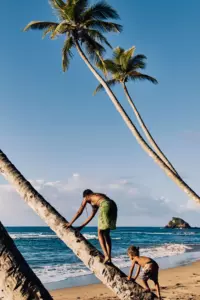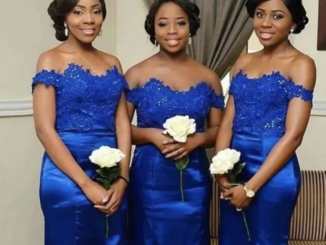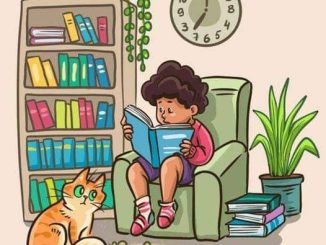
A lot of big, tragic and important things have happened to this wonderful country of ours since April 2014. None of which I have covered. I was too busy writing about hungover parenting, ancient philosophy and my dog Colin.
Out of the 536 columns I have written, 27 were about that guy. Far too few. He is such a good boy, he deserves an article a week.
Today is the end of an era for me, and whenever these final events pop up in our lives, we can’t help but think about the ultimate end.
Everything we do, we will one day do for the last time. That’s why you have to enjoy things while they are around. It’s not just big events like leaving a job, house or loved one either. Whatever moment you happen to be in now, you will never get it back, and you don’t know how many more you have.
Everything we do in life, from eating pizza to spending time with the people we love, to driving, writing, drinking or breathing, we will one day experience for the final time. It might happen tomorrow. This can be either a depressing or an inspiring thought, depending on how you look at it.
A few years back in this column, I interviewed professor of philosophy William B Irvine, of Wright State University, Ohio, on this very topic. He put it this way on a Zoom call: “Recognition of the impermanence of everything in life can invest the things we do with a significance and intensity that would otherwise be absent. The only way we can be truly alive is if we make it our business periodically to entertain thoughts of the end.”
Today’s column is very meaningful to me because it is my last. Like the last night with a lover before she goes overseas. And just like a lover, there have been some half-arsed efforts put in from me over the years. Last week, for example, I spent 750 words moaning about how bad my cricket team is. But the truth is that any of my columns could have been the final. If I had reminded myself every week for the past 10 years that the end is inevitable, I may have been more grateful for having a column and appreciated writing them all as much as I am this one.
While everything we do could have more meaning with a focus on finitude, some things are inherently more worthwhile than others. There is no doubt my column “The pros and cons of wearing Speedos” from November 2022 was less meaningful than most things in this world. That was a waste of everyone’s time. So, if we only have so much time, how do we pick the best things to do?
Well, Oliver Burkeman, the author of Four Thousand Weeks – Time Management For Mortals, suggested this to me in a 2022 column: “Ask yourself, does this choice enlarge me? You usually know on some unspoken level if it does. That’s a good way to distinguish between options.”
With that in mind, I don’t feel great about my 2018 article on “New Zealand’s best hole”. That didn’t enlarge anyone.
There will be people reading this column right now who have loved my writing in the Herald and are sad to see it end. Others will have hated it and are glad to see me go. Many won’t have any opinion at all. But for those in the first camp, I have good news. I have a book coming out on May 28 called A Life Less Punishing – 13 Ways To Love The Life You Got (Allen and Unwin Book Publishers). It’s a deep dive into the history, philosophy and science of not wasting our time lost in anger, loneliness, humiliation, stress, fear, boredom and all the other ways we find to not enjoy perfectly good lives. It’s available for pre-order right now (google it if you’re interested).
A Life Less Punishing took me two years to write and is equivalent in words to 100 of these columns. Which would be a complete nightmare for those in the hate camp, but as I say, great news for those who want more.
Anyway, thanks to the Herald for having me, thanks to the lovely people who make an effort to say nice things to me about my column nearly every day and thanks to the universe for every single second we get.
Bless!
This Caribbean Island Is Back From the Brink—and Ready To Share Its Treasures With the World

Every product that appears on Condé Nast Traveler has been hand-picked by our editors. However, we might receive an affiliate commission if you make a purchase using one of our retail links.
The paintings of Italian-born artist Agostino Brunias, who made a profession of depicting the island in subdued, stylized settings that covered up the harsh realities of colonial control, were my first visual introduction to Dominica. However, as soon as I step onto its winding roads, which begin to twist shortly after I arrive, it becomes evident that this region, which is situated in the center of the Lesser Antilles’ curve, is anything but tame. The two-toned leaves of its bois canot trees, which change color from green to white when they sway in the wind, shimmer and bristle with the power of the volcano. It lulls with the erratic sound of its numerous waterfalls, scatters rainbows haphazardly across its breathtaking horizons, and enchants from the depths with its vibrant coral reefs. And it roars come storm season.

The indigenous Kalinago people of Dominica survived invasion by the French and British, who imposed slavery on the Africans who now make up four-fifths of the island’s population and left a linguistic legacy of English and French-based Creole, by mastering the lush tropical rainforest that covers more than 60% of the island. If you visit Trinidad for roti and Jamaica for jerk, you should travel to Dominica for green things like bush rum and flower teas. There are a ton of medicinal herbs in the forest.

The Jungle Bay Dominica resort, located smack dab in the center of the Soufrière jungles, leans into nature instead, maybe realizing the futility of fighting against the earth’s generosity. When I finally get there, the kitchen is closed. Joanne Hilaire, the operations manager, tells me that they never let guests go hungry, though, so I can feel the warmth of Dominica’s welcome. The cook is preparing an excellently stewed dish of beans with taro, rice, and plantain for our late dinner, off the menu, while I have a refreshing ginger-lime cocktail that is a local favorite. When I wake up the following morning, I find that my villa’s doors open onto a private veranda that faces southwest toward Soufrière Bay, where the Caribbean Sea and the Atlantic Ocean converge. I let the light wake me for the remainder of my stay by leaving my blinds open.



Leave a Reply